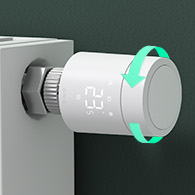I have an L shaped bathroom. A single light in the bathroom does not cast enough light round the L. Wife wants a second light put in. No other elecrtics are in the bathroom. The bathroom lights are on the same circuit as the rest of the upstairs lights circuits. The lights are on a 6 amp MCB which is not protected by an RCD.
If i add the extra light, just run the cable to it from the existing light, does this mean that i have extended the circuit and therefore because they are in a bathroom,the lights now have to be protected by the RCD. And the work notified etc,
If the answer is yes could it not be argued that this makes the existing installation less safe than it was before, as if a bulb blows there is a good chance the RCD would trip and all the upstairs lights would be off.
To run a seperate circuit to the bathroom lights seems an excessive and relatively expensive option.
If i add the extra light, just run the cable to it from the existing light, does this mean that i have extended the circuit and therefore because they are in a bathroom,the lights now have to be protected by the RCD. And the work notified etc,
If the answer is yes could it not be argued that this makes the existing installation less safe than it was before, as if a bulb blows there is a good chance the RCD would trip and all the upstairs lights would be off.
To run a seperate circuit to the bathroom lights seems an excessive and relatively expensive option.


